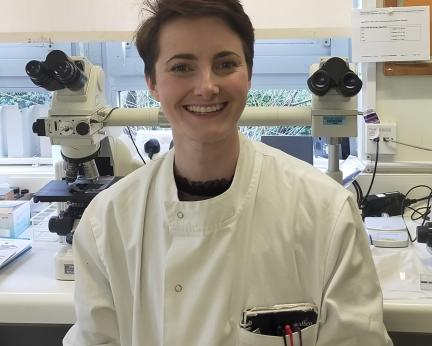Training as an MLA gave me a solid foundation and an initial understanding of how laboratory investigations work, and allowed me to pick up my new role as a trainee biomedical scientist very quickly. As an MLA I completed my part one Institute of Biomedical Science portfolio which I can put towards my accreditation. And my apprenticeship is giving me essential knowledge to both perform my role and study for a degree.
I'm really proud of the progress I've made in a short space of time, considering I had no previous experience or relevant qualifications. Taking to my role so well made me realise my career change was the right one!
I’m focused on my role and degree apprenticeship at the moment, but, once I am qualified, I will complete my specialist portfolio and apply for a Master’s degree. Who knows what opportunities will arise and what the future will hold!
If you’re thinking of a career in healthcare science, my advice is to try and gain some experience or understanding of what happens in a medical laboratory. There’s nothing like learning on the job in a clinical setting; learning at university doesn’t compare!
To be a biomedical scientist, you need to be practical, adaptable and organised.





